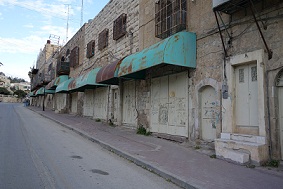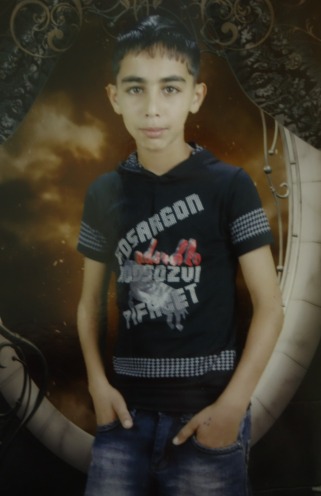Tag: Hebron
-
Armed settlers occupy village land in Hebron
14th March 2014 | International Solidarity Movement, Team Khalil | Arab ar Rashyaida, Occupied Palestine On Tuesday 11th March 2014 villagers from Arab ar Rashyaida, 15 kilometers (10 miles) west of Hebron, noticed that a large tent and industrial digger had moved onto a hill top on a villagers land. ISM Hebron was called and accompanied…
-
ISM volunteers attacked by Zionist tourists in Hebron
Two ISM activists walking on Shudaha Street area were brutally attacked by French Zionist tourists who were visiting to attend the weekly settler tour of the Palestinian part of Hebron. At around 1:30 PM the activists were walking in the direction of Shuhada Street when the 6 young men rounded the corner, upon seeing the activists…
-
Palestinian children continue to be imprisoned
9th March 2014| International Solidarity Movement, Team Khalil| Hebron, Occupied Palestine On Tuesday 4th March, 14-year-old Wassem Rajabi from the Jabal Johar area of Hebron (al-Khalil), was detained and driven away by Israeli soldiers on his way back from school. This Thursday, after nine days in prison, his family will go to the police station…



